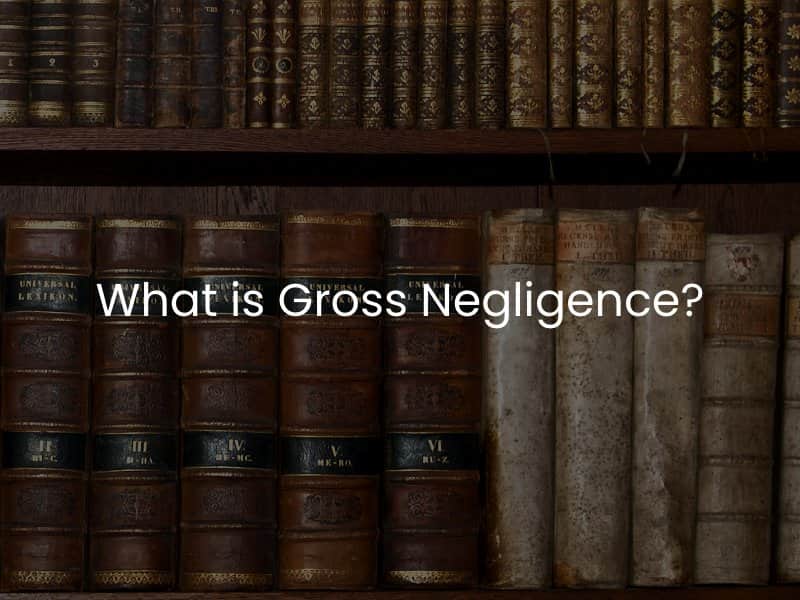What is Gross Negligence?
Most people have heard of the terms “negligence” and “gross,” but they may not have heard the two terms used together. Here, we want to properly define gross negligence. Anytime a person is harmed due to the actions of someone else, the injury victim should be able to recover compensation for their losses. In most cases, personal injury claims revolve around the idea of the other party being “negligent,” but there are times when gross negligence is involved.

Looking at Ordinary Negligence
In order for us to gain a good understanding of what gross negligence is, we have to properly define ordinary negligence so we can look at the difference between the two. Ordinary negligence is what we are usually talking about when dealing with personal injury claims.
This type of negligence occurs anytime one individual or entity fails to take reasonable precautions that another person would take in a similar situation. Sometimes, one person’s negligence can cause harm to another person. Some common examples of how ordinary negligence could apply include the following:
- A driver is distracted by their cell phone and causes a crash because they ran a red light.
- Store owners or employees who fail to put up “wet floor” signs after mopping or waxing.
- A doctor failing to assess a patient’s chart for known allergies before prescribing a medication.
In these situations, an injury lawyer will find that the negligent party typically does not necessarily intend to cause harm to another person, but their actions nonetheless result in an injury.
Understanding How Gross Negligence is Different
Gross negligence is defined by individuals exhibiting an extreme reckless disregard or indifference for the safety of others. This is much different than the standard for traditional negligence in a personal injury case. Gross negligence goes beyond a failure to act responsibly.
Gross negligence often includes the willful behavior on the part of the alleged responsible party (the defendant). When discussing gross negligence, we typically see that this type of conduct has foreseeable harm. Some of the following are examples of gross negligence:
- A driver operating 50 mph above the speed limit through a school zone while chasing another driver.
- A doctor amputating the wrong lamb of a patient or operating on the wrong side of a person’s body.
- A business selling a product that they know is harmful or has been recalled.
- Nursing home staff members or a caregiver failing to provide medication or food to a patient for several days.
Both ordinary negligence and gross negligence can lead to lawsuits. Typically, we will see that the injury victim or their representative will file a personal injury lawsuit against the alleged negligent party. Victims of gross negligence will normally be entitled to the same types of compensation as those harmed due to ordinary negligence. However, gross negligence victims may also be able to recover additional types of compensation. Punitive damages are often awarded in order to punish the wrongdoer and send a message to others that this type of behavior is not acceptable.
Finding a Lawyer
If you or somebody you care about has been injured due to the negligent actions of another individual, you need to work with an attorney to help recover compensation on your behalf. If you have been harmed due to the gross negligence of someone else, you may be entitled to a range of types of compensation for your losses. An attorney will be able to thoroughly investigate the incident, help properly calculate total expected losses, and handle every aspect of your court case.